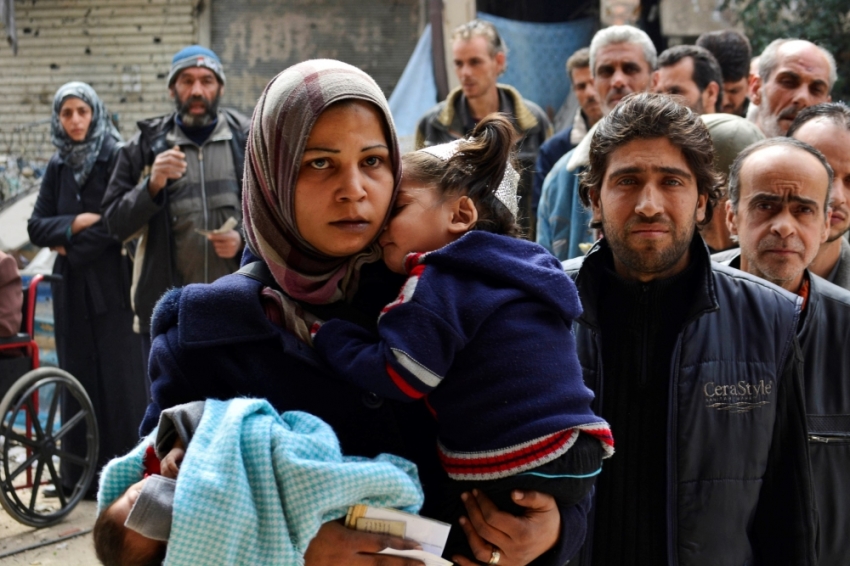ISIS Slaughters and Mutilates 400, Mostly Women and Children, in Syrian City of Palmyra; Hundreds of Captives Face Similar Fate

Terror group ISIS has executed at least 400 people, mostly women and children, in the city of Palmyra since it was captured last week, Syrian state television has said. Hundreds of others have been captured and face a similar fate, according to a human rights agency.
"The terrorists have killed more than 400 people ... and mutilated their bodies, under the pretext that they cooperated with the government and did not follow orders," The Independent quoted the state news agency on Sunday, noting that most of the dead are women and children.
Residents have said that the hundreds of bodies that littered the streets of the ancient city are victims from groups loyal to the government, which is engaged in a civil war both against ISIS and other rebel groups trying to overthrow it.
The capture of Palmyra last week made headlines because of its designation as a UNESCO World Heritage site, largely for its well preserved Roman era ruins.
Tim Muret, a communications officer at Open Doors, a Christian nonprofit serving the persecuted Church, told The Christian Post last week that the real story is the kidnappings, killings, and destruction of villages that ISIS is carrying out.
"These too have historical significance, and many of the villages are Christian," Muret said. "We do our best as an organization to educate churches that what you see in the news is really just the tip of the iceberg."
Other watchdog groups, such as the Syrian Observatory for Human Rights, put the number of killed this past week in Palmyra lower at 217, but said that 600 others have been detained by the Islamic militants, and likely face a similar fate.
"It is expected that the destiny of the 600 detainees of the regime forces and allied militiamen will be the same destiny of the 217 people who were executed by IS," SOHR reported on Sunday, referring to the Islamic State, another name used by ISIS.
"IS has started to execute civilians on May 16, after two days of taking control of the city of al- Sikhni, where IS started it attack on the city in the 13th of May until day before yesterday, while executions against members of the regime forces and allied militiamen who were arrested during the last attack on the area have continued."
The terror group, which has now seized over half of Syria's territory, also recently captured the key Iraqi city of Ramadi, it's most significant victory since the U.S. began airstrike operations against the jihadists last year.
President Barack Obama has insisted that despite the recent losses, ISIS is not winning the war in the region, but admitted that the conflict will be a "multi-year campaign."
"I don't think we're losing," Obama told The Atlantic days after the fall of Ramadi. "There's no doubt there was a tactical setback, although Ramadi had been vulnerable for a very long time, primarily because these are not Iraqi security forces that we have trained or reinforced."
There have been mounting questions over Obama's strategy in the war, however, with House Speaker John Boehner, R-Ohio, telling the president last week that his request for military authorization to continue the fight against terror needs to be revised and will not be accepted in it current state.
Sen. John McCain, R-Ariz., who is the chairman of the Senate Armed Services Committee, called the fall of Ramadi and the strategy employed in the region "one of the most disgraceful episodes in American history."



























